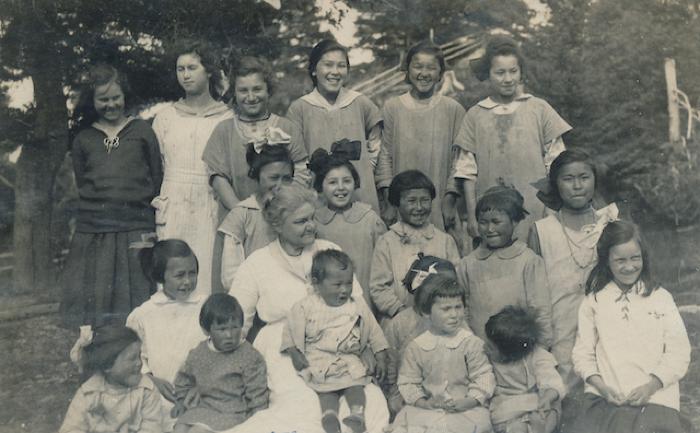Orphan — Lliya’aq

In classical Alutiiq society, young people who lost their parents were adopted into wealthy families as laborers, working in return for food, clothing, and shelter. This treatment of orphans is indicative of the importance of family to Alutiiq people. A person’s lineage was not only essential to defining their identity but to maintaining it. Without a family, a person had few social or economic resources and was easily disregarded. This perception of orphans is not unique to Alutiiq people. Alaska’s Athabascan and Iñupiaq societies also used orphans as laborers.
The treatment of orphans is recorded in traditional Alutiiq stories. One tale from Prince William Sound tells of three orphan boys. After being badly abused, they take revenge on their village. Escaping imprisonment in an empty sod house, the boys find weapons, kill the community chief and his family, chase away the other villagers, and then leave the community to live by themselves.
In 1893, the word orphan took on a new meaning in Kodiak, when the Baptist Mission founded a home for needy children on Woody Island. This organization cared for children whose parents had died or were unable to support them. Unfortunately, the orphanage forbade the practice of Indigenous spiritual rituals and of Russian Orthodoxy—the predominant religion of their Native residents—and in some cases took children against their parents’ will. Children came from the Kodiak area and from adjacent areas like the Aleutian Islands. By 1900, there were forty-eight children in the home. In addition to academic studies, girls learned household chores and boys received instruction in agriculture.
